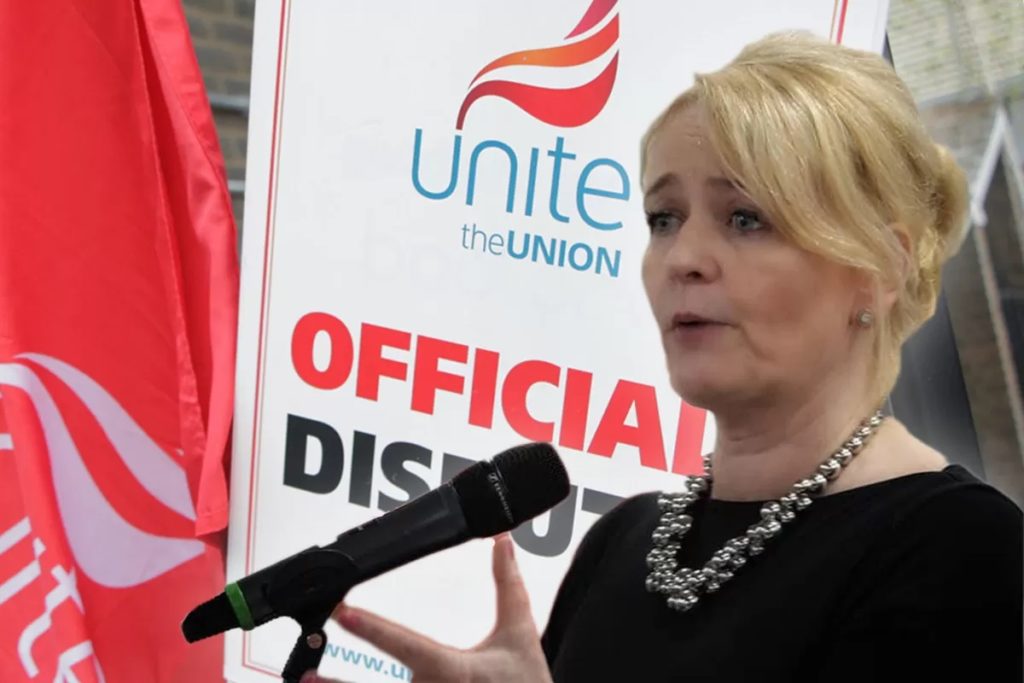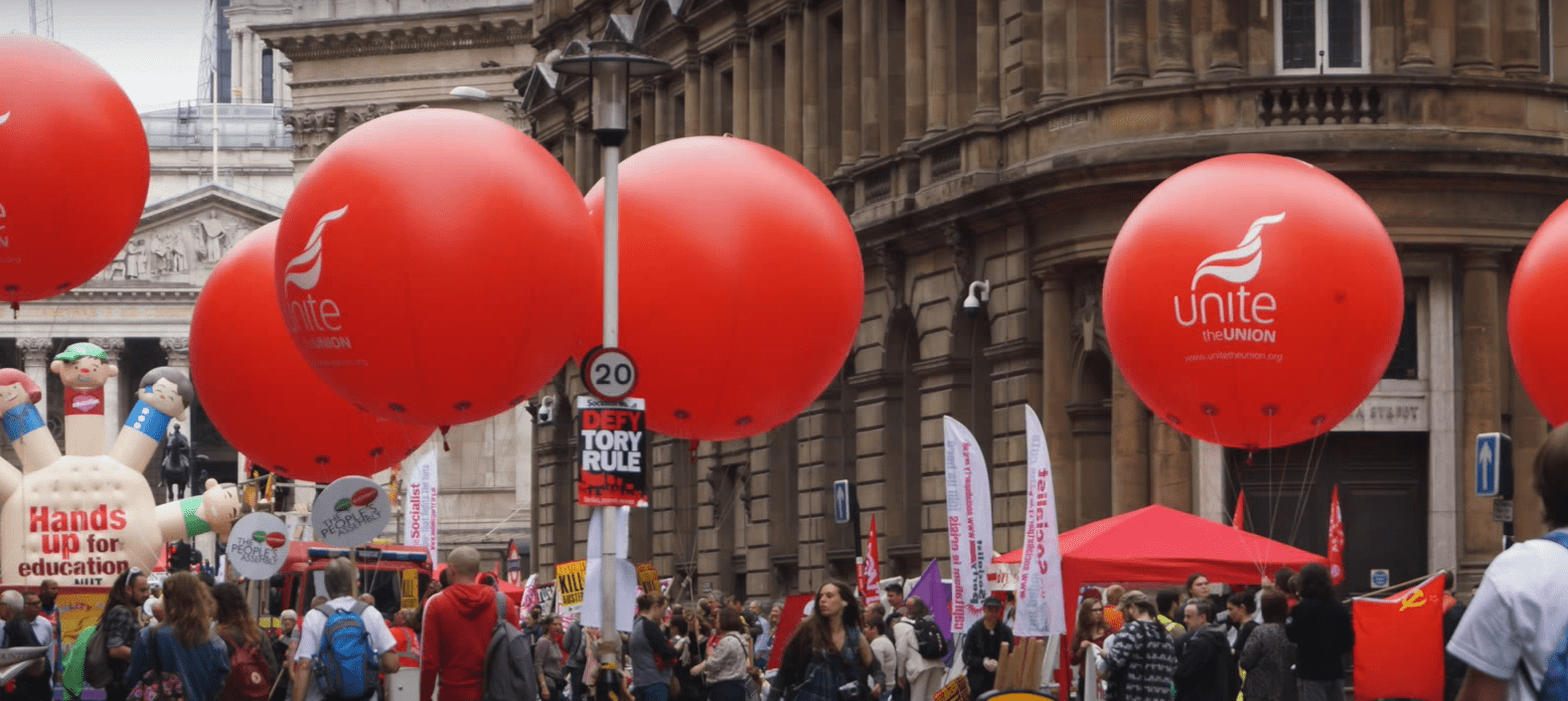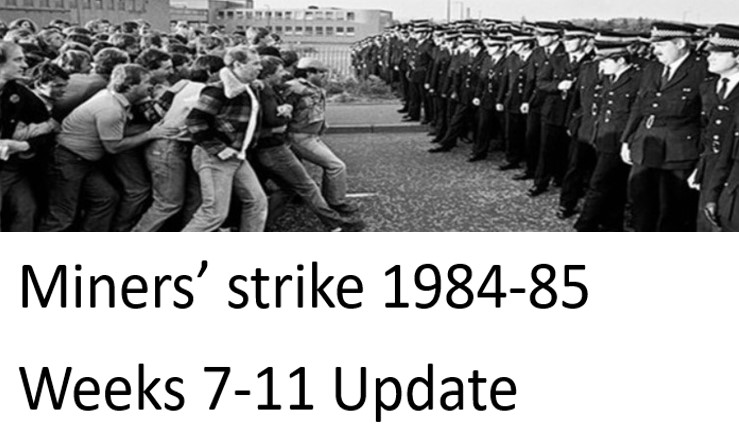By William F Ward, Unite activist
[Editorial note: although we have carried other articles on the recent Unite NEC elections, Left Horizons editors believe it is important for union activists to put forward their own interpretation of the results, the better to promote discussion among left union members]
The recent elections to the national Executive Committee of Unite give an insight to developments in this key union, still Britain’s second largest.
Unite has a presence across the private sector, including key industries like aerospace, car manufacture, docks, power stations, food, construction and civil aviation. The union has 48,000 members in Ireland (North and South), 100,000 in Scotland and 51,000 in Wales. The election revealed that Unite has about 850,000 members, down by 15% from the one million-plus when Len McCluskey was elected.
The most noticeable feature of these elections was the low turnout. With the exception of the Retired Members section, which had a 31% turnout, only Education exceeded 10%. The lowest turnout was in Automotive Industries, on 5%, and the average for the regional seats was just 5.8%, while for the industrial sectors it was slightly better at 6.4%.
Nineteen out of every twenty members did not vote
So, about nineteen out of every twenty members do not vote in elections to their own union. The main reason is that Tory anti-union laws mandate a postal vote to the home addresses, which means, unfortunately, that many ballot papers are left on the mantelpiece or treated as junk mail.
Every other organisation in British society, from golf clubs to the Conservative Party is free to choose their method of election to committees and leadership. But not the unions. The Tory aim was, of course, to dilute out the influence of the active reps and members in favour of a mythical ‘silent majority’ of ‘moderate’ members. On this evidence, the ’silent majority’ simply do not vote.
But Unite is itself at fault by making it so hard for members and reps to participate in the union and its structures, and by underfunding and downplaying the role of branches. An ordinary member cannot stand for any position in the union except shop steward or General Secretary! The result is a lack of connection between the members and their union, which is seen as something external, not ‘theirs’.
The results of the EC election reveal a fine balance between supporters of the new General Secretary, Sharon Graham, and the old United Left grouping (now re-christened ‘Members First’), which is politically dominated by the Morning Star. The United Left is also the grouping most closely aligned to the full time officers of the union, who are still in shock at the victory of Sharon Graham.
Like Sauron, the old right wing can rise again
The old right wing inherited from the EETPU (electricians union) and AEU (engineers) are nowhere to be seen in these elections, although like Sauron in Lord of the Rings, they remain dormant and ready to arise again – as shown by the shock nomination by Unite of arch right-winger Gerard Coyne to the parliamentary seat of West Bromwich East.
In the regional seats, Sharon Graham’s supporters made a pretty good sweep with the United Left/Members First faction only winning one seat in London, one in Yorkshire and two in West Midlands. The London result was a big upset as United Left thought they had the four seats sewn up. But of course fixing a nominations process is a different matter to winning a contested election in a constituency of 177,000 members. In the event only about 5,000 voted and the margin of victory was only 400 votes.
In Scotland, the full-time officer dominated PULS (Progressive United Left Scotland) faction also won both Scottish seats, supplanting long-time NHS activist Helen McFarlane. Liverpool docks shop steward John Lynch also won a surprise victory as an independent in the North-west.
In the industrial sectors, the picture was more mixed. In the uncontested seats UL got three places in Pharmaceuticals, Docks, and Energy; Sharon Graham supporters gained two in Engineering, Manufacturing & Steel, and one in Government services.
Anti black-list activist lost his seat
In the contested elections, there was a shock defeat for leading Sharon Graham supporter John Cooper by 164 votes in an electorate of 56,000. United Left won in Community & Not for Profit, Education, Food Drink & Agriculture, Graphical & Print, Local Authorities (by 164 votes), Passenger Transport, and Service Industries.
Sharon Graham’s supporters only won one of the Automotive seats, and also in Finance, one of the NHS seats and both Road Transport seats.
In Construction, one seat was won by a long time ex-UCATT activist (the building union, UCATT, merged with Unite in 2017) and another by Tony Seaman from the Unite Construction rank and file, which means that anti-blacklist activist Frank Morris lost his seat by 205 votes in a constituency of 57,000.
In the Equalities seats the balance is two UL, two Sharon Graham and one independent.
How all this will play out on the Executive is hard to call, as the two groupings are a bit more fluid than past factions, with some cross-voting and rumours of imminent defections either way. A rough estimate is 27 for Sharon Graham, 23 for UL, and 7 independents. In a further complication the four Civil Air Transport (CAT) seats have to be re-run following complaints over process. CAT is home to the BASSA (British Airways Stewards and Stewardesses Association) branch, which is the biggest, most influential and most controversial branch in the union.
Candidates often chosen by tiny meetings of activists
The old United Left, despite its relaunch as ‘Members First’ tries to uses Stalinist methods so that a small number of people can control the union. Sometimes an EC seat representing tens of thousands of members would be decided in a nominating meeting of only half a dozen. It has also functioned in the past as a bit of a jobs club for people who want to be full time officers.

Politically, the UL/Members First put forward a social democratic position very similar to the Labour left but have a terrible tendency to make a rotten compromise with the right wing at the crucial moment. This was demonstrated big time during Corbyn’s leadership, where although Unite did pile in to assist Corbyn from a point half-way through the 2017 election, it then made a rotten compromise with the Blairites by failing to uphold Open Selection of Labour MPs.
Industrially you will often find them retreating into patriotism, such as “Save the British Car Industry” or in partnership with employers calling for bail outs for troubled enterprises, rather than nationalisation. But they do at least have the aim of making an organised intervention into the Labour Party.
Sharon Graham and her grouping on the other hand, have not got a clear position on the Labour Party. Unite is paying its ‘minimum subscription’ (which is still £375,000 every 3 months) but is in effect making no organised intervention into the Labour Party.
Sharon has even been reported to be “neutral “on the question of affiliation to Labour and she has not denied this. What this amounts to in practice is to continue paying in to Labour and just leaving Starmer, Evans and the right wing unions to set policy and make up the rules as they go along.
Sharon Graham’s slate pulled together at the last minute
For instance, Sharon Graham and Unite have launched a very good report calling for nationalisation of the energy sector. But how can Unite achieve this, except by engaging in a serious battle over the policy of the Party? Also, as her slate of candidates for the EC was pulled together very last minute, they have very divergent opinions on policy matters. Some are ex-UL, some are completely new workplace reps, and one or two were affiliated until recently with the old right-wing. There are reports that some excellent lefts were not even considered for her slate because they were Labour Party members.
Having said all that, the Sharon Graham leadership is far better than that of McCluskey and the UL in terms of its relationship to members in general and its more militant stance on industrial issues, which is ultimately where it counts. In fact, McCluskey used the UL to control the Executive, which severely reduced the accountability of senior officers.
Sharon Graham’s regime is far less bureaucratic. She has given free rein to the regional officers and reps to use the industrial tactics of pay claim, ballot and strike to increase wages. Rises of 12%, 15%, or even 20% are not uncommon in medium sized private sector employers. HGV drivers at Wincanton even secured rises close to 40%.
But again the limitations of a purely industrial strategy are there to see. In disputes in local government, the railways, or the NHS, what stands behind the employers is the government, equipped with the full resources – financial, organisational and political – of the state. To win these sorts of disputes, a political strategy is required. It is not good enough to walk away and blame “the politicians”. How will Unite secure repeal of the Minimum Services Bill or the rest of the anti-union legislation? Even the most militant industrial tactics need a political dimension.
Unite is seen as the most militant of the larger unions
Unite has made huge strides forward in the months since Sharon Graham’s election as General Secretary. But it would be a serious blunder if the forthcoming rules revision conference ended up in disaffiliating from the Labour Party by default – through the lack of a lead from above. Unite is now widely seen as the most industrially militant of the ‘big four’ unions. It needs to supplement that by becoming the most consistent and energetic fighter for the left in the Labour Party as well.



